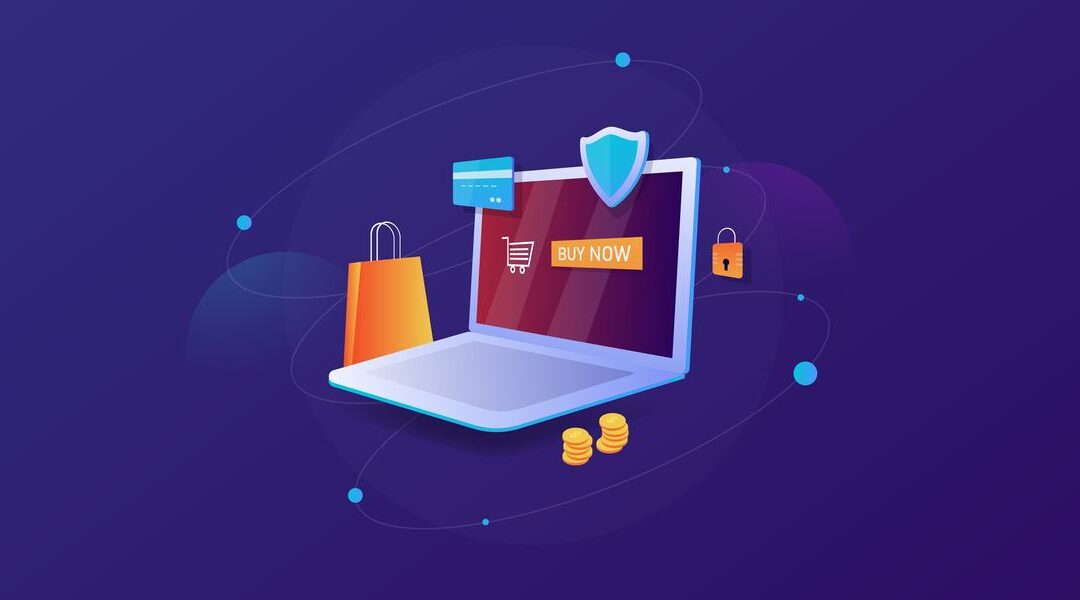With the rapid growth of online shopping, ecommerce has become an integral part of modern business. However, along with the convenience and profitability come significant security risks. Ensuring the security of your online store and safeguarding customer data should be a top priority for any ecommerce business. In this article, we will explore essential ecommerce security strategies and best practices to protect your store and customer information from cyber threats.
Ecommerce Security Platforms and Payment Gateways
The foundation of ecommerce security lies in choosing a secure and reputable ecommerce platform. Opt for platforms that prioritize security and provide regular updates to address vulnerabilities. Additionally, utilize trusted payment gateways that employ encryption and comply with industry security standards, such as PCI DSS. This ensures that customer payment information is securely processed and transmitted.
Implement SSL/TLS Encryption
Secure Sockets Layer (SSL) or Transport Layer Security (TLS) encryption is vital for protecting sensitive data during online transactions. By encrypting data transmitted between your website and customers’ browsers, you prevent unauthorized interception or tampering. Obtain and install an SSL/TLS certificate, indicated by the “https” and padlock symbol in the browser address bar, to assure customers of a secure connection.
Strong Password Policies and Two-Factor Authentication (2FA)
Enforce strong password policies for both customer accounts and administrative access. Encourage customers to create unique, complex passwords and implement password strength requirements. Additionally, consider implementing Two-Factor Authentication (2FA) for added security. 2FA requires users to provide an additional verification factor, such as a unique code sent to their mobile device, for account access, significantly reducing the risk of unauthorized access.
Regular Updates and Patch Management
Maintaining up-to-date software, plugins, and ecommerce extensions is critical for mitigating security vulnerabilities. Regularly check for updates and patches provided by the platform and plugin developers, as they often include security enhancements. Implement a patch management strategy to ensure prompt deployment of updates and protect your online store from known exploits.
Robust Firewall and Intrusion Detection Systems
Implementing a robust firewall and intrusion detection system adds an extra layer of protection to your ecommerce environment. Firewalls monitor and filter network traffic, blocking potential threats from accessing your store. Intrusion Detection Systems (IDS) monitor for suspicious activities and alert you to potential attacks. These systems work together to identify and prevent unauthorized access attempts and malicious activities.
Regular Security Audits and Vulnerability Assessments
Performing regular security audits and vulnerability assessments is crucial for identifying weaknesses in your ecommerce infrastructure. Conduct comprehensive assessments to identify potential vulnerabilities and promptly address them. This proactive approach helps you stay one step ahead of potential threats and strengthens your overall security posture.
Employee Education and Awareness
Train your employees on ecommerce security best practices to ensure they understand their role in maintaining a secure environment. Educate them on identifying phishing emails, social engineering techniques, and safe browsing habits. Regularly communicate security updates and encourage reporting of any suspicious activities. An educated and vigilant team plays a crucial role in preventing security breaches.
Securing your ecommerce store and protecting customer data are paramount for building trust and ensuring the long-term success of your online business. By implementing robust security measures, such as using secure ecommerce platforms, encrypting data, enforcing strong passwords, and regularly updating your systems, you can minimize the risk of security breaches and provide a safe online shopping experience for your customers. Stay proactive, regularly assess your security measures, and invest in continuous education to keep up with evolving cyber threats. Remember, ecommerce security is an ongoing effort that requires constant vigilance to protect your online store and your customers’ valuable data.
Ready to secure your store?
Let our expert team provide you with comprehensive managed IT services, cutting-edge cybersecurity solutions, and professional ecommerce website design and management. Don’t wait until it’s too late—protect your valuable assets and ensure the continuity of your business. Reach out to GO IT now and experience the peace of mind that comes with a robust and proactive IT partner.

